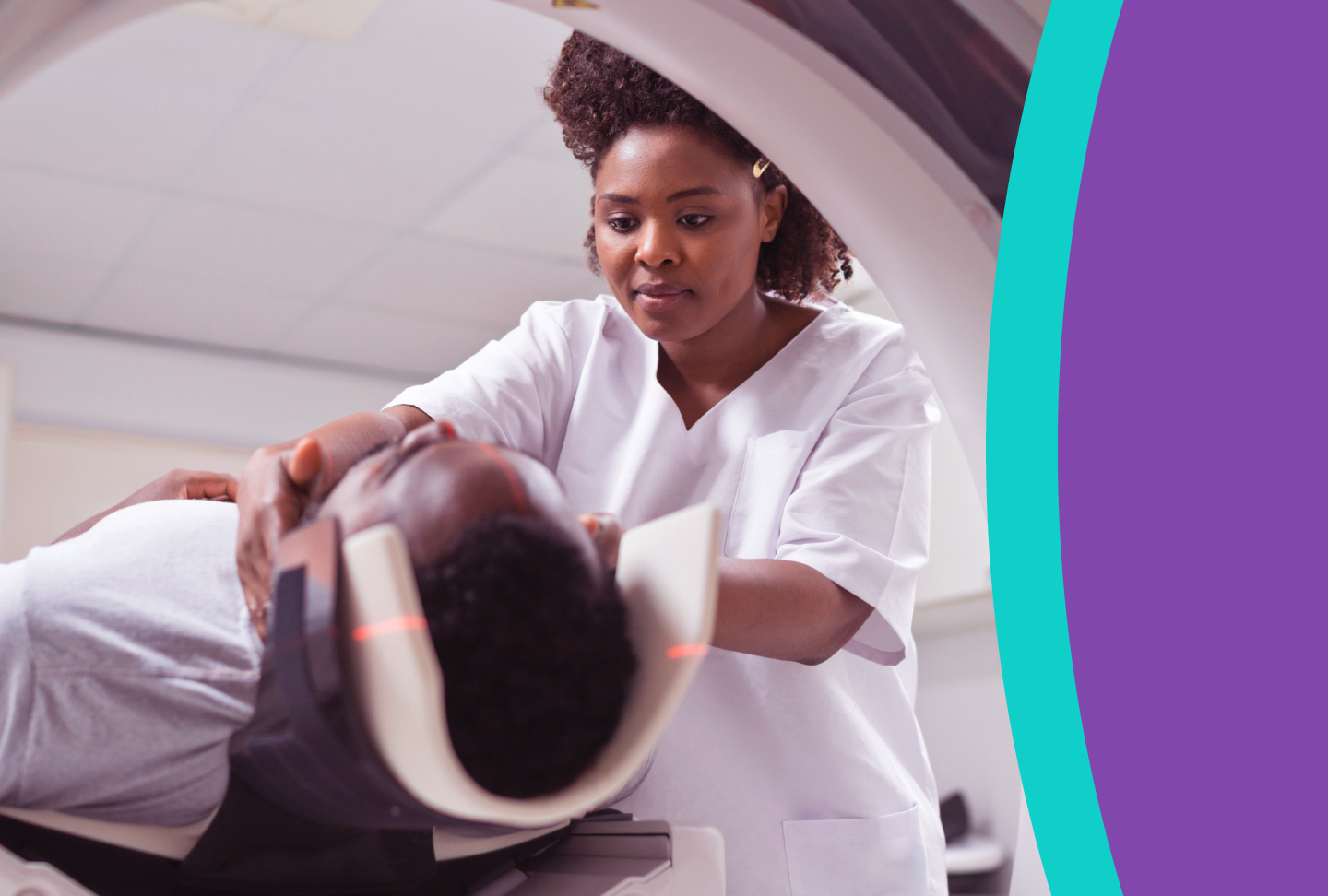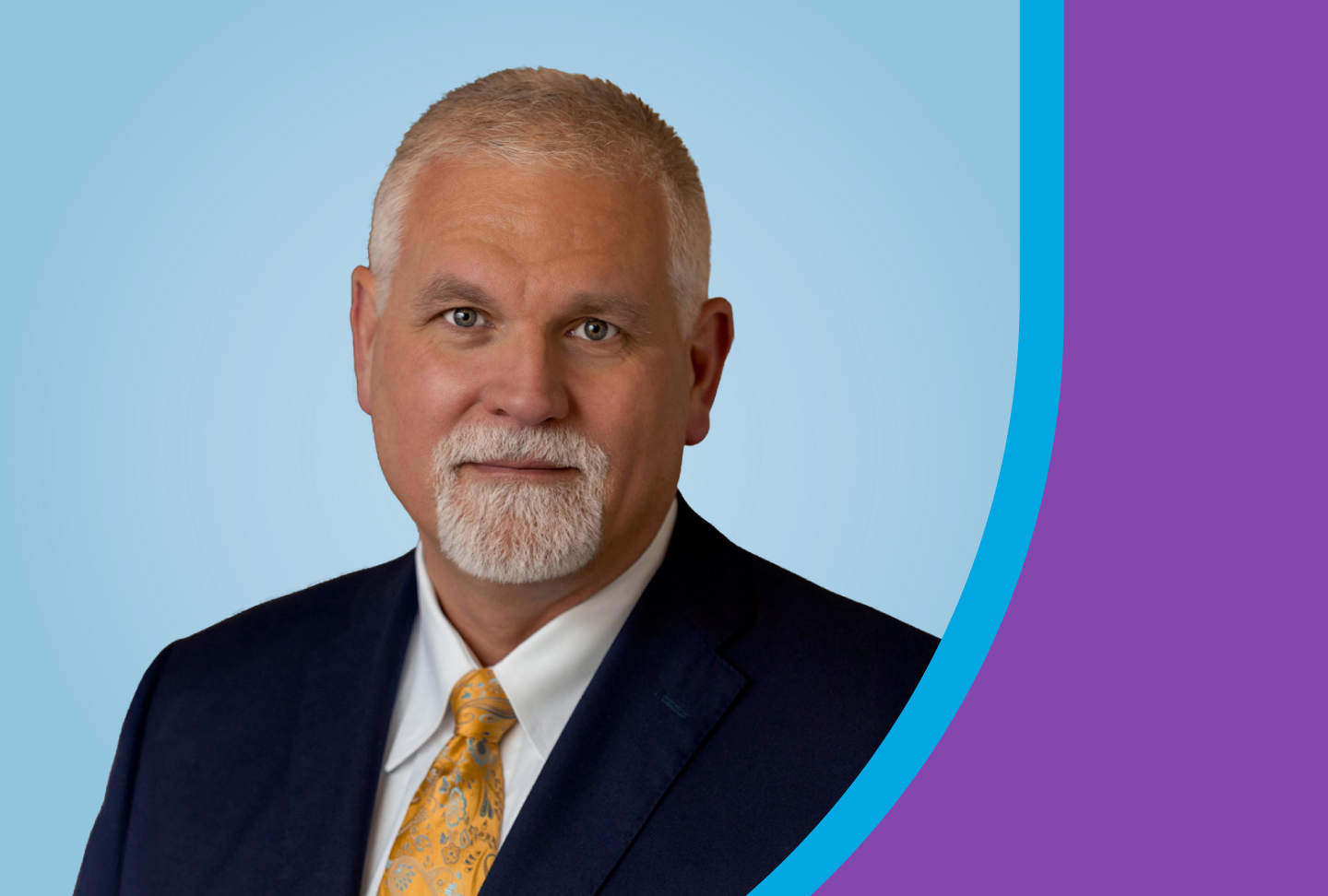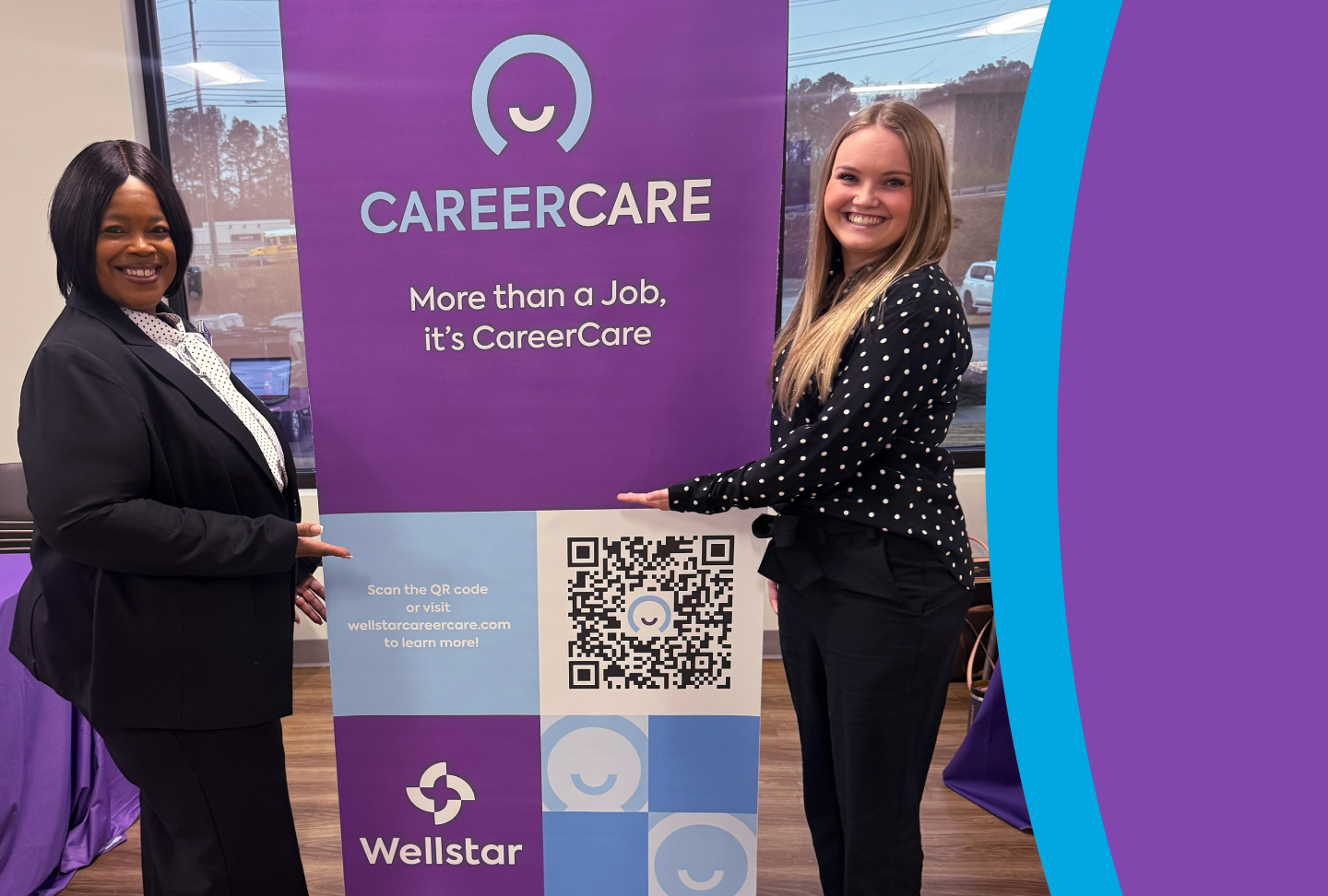When a family member receives a cancer diagnosis, you want the absolute best cancer care for them. Having multiple family members impacted by cancer and neurological conditions inspired Dr. Gerald Wallace to pursue neuro-oncology and to create the Leptomeningeal Disease Clinic at Wellstar Georgia Cancer Center. The goal of the clinic is to diagnose, treat and raise awareness of the life-threatening disease.
“Neurology and cancer have deeply impacted my life for as long as I can remember,” said Wallace, an assistant professor in the division of Hematology/Oncology at the Medical College of Georgia. “I love doing this job; everything about it is just fascinating to me.”
Leptomeningeal disease is a type of metastatic cancer. The leptomeninges are two layers of tissue within the meninges that cover the brain and spinal cord. They are the innermost layers, which line the surface of the brain, blood vessels and surround the cerebrospinal fluid. Researchers estimate that 5% to 8% of people with cancer will develop leptomeningeal disease. It is also estimated that of the nearly 54,000 Georgians diagnosed each year with invasive cancer, as many as 4,000 are at risk of developing leptomeningeal disease. While there is still much that is unknown about the disease, experts do know that it is life-threatening. Without treatment, most patients will only live another six to eight weeks. With treatment, people can live well for months and, in some cases, years.
“That six to 12 months is the next graduation, the next wedding, the next birth of a child… at the end of the day I think we are all just fighting for time to spend with our loved ones. So, we should do something. Treatment is not that bad; it is quite tolerable,” said Wallace.
Possible symptoms that are associated with leptomeningeal disease are visual changes, stiff neck, trouble walking, headache that worsens when lying down, urinary/bowel incontinence, and memory issues. Wallace is concerned when he sees a patient with neuropathies or new neurological symptoms that do not connect to a patient’s known disease. When he hears or sees these sorts of symptoms, he sends patients to get tested. He thinks leptomeningeal disease is easily missed because most patients will already have had cancer for months or years. For these patients, symptoms may be attributed to treatment rather than cancer in the leptomeningeal space.
“If you have problems with one nerve here and one nerve over there, and I cannot connect the two… that really makes me nervous. Something is going on in a more global space than would otherwise be indicated in, say, a tumor that was sitting in the visual cortex and you cannot see well,” he said.
There are treatment options for patients diagnosed with leptomeningeal disease. The first step is to confirm the diagnosis. Contrasted MRI of the brain and spinal cord is used to see if there is anything suspicious or out of the ordinary. MRI is followed by two lumbar punctures to see if there is cancer in the cerebrospinal fluid. Once the diagnosis is confirmed, the next step is radiation of the brain and possibly the spinal cord. Finally, patients meet with a neurosurgeon to discuss placement of an Ommaya reservoir. An Ommaya reservoir is a special port that allows access to the cerebrospinal fluid in the brain. It sits under the hairline on the scalp and is an easier way to give chemotherapy, evaluate spinal fluid and decrease intracranial pressure.
Wallace uses a variety of medications that are given through the Ommaya reservoir to treat leptomeningeal disease. The choice of medication depends on the type of cancer, specific mutations in the cancer and, most importantly, the ability of the patient to tolerate therapy. Patients start off going weekly for treatment for a few months. If they see good results, they can start going every other week, then monthly.
In recent years there have been major breakthroughs for drugs that may be able to treat leptomeningeal disease. Wallace is excited about their potential and is working to create clinical trials at the Wellstar Georgia Cancer Center to assess that potential. As people live longer with cancer, the likelihood of a cancer survivor being diagnosed with leptomeningeal disease also increases.
“I think there is great potential to make big strides in survival and quality of life for patients with leptomeningeal disease,” he said.
If you are concerned about leptomeningeal disease, you can schedule an appointment with Wallace and his team by calling (706) 721-2505.




